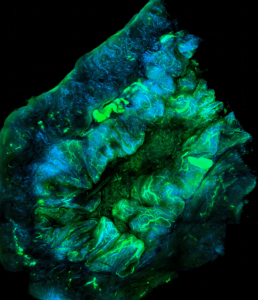Gene expression signature for predicting response to immune checkpoint blockade (ICB) cancer therapy

Tech ID
23-038
Inventors
Y. Gu
X. Lin
Y. Dong
P. Major
A. Kapoor
D. Tang
Patent Status
US provisional patent filed
Stage of Research
Proof of concept data available
Contact
Amy Hector
Business Development Manager
Abstract
Cancer progression relies on evasion of the immune response. Immune checkpoint blockade (ICB) therapy restores this immune response for many cancer types by preventing the binding of immune checkpoints on the surface of immune cells to their ligands [1]. Resistance to ICB therapy is common, therefore monitoring the response to ICB treatment is essential for improving cancer treatment [2].
Researchers at McMaster University have discovered novel multigene and individual gene panels that can effectively predict response to ICB therapy [3].
Applications
- Clinical applications as a prognosis tool in assessing response to ICB treatment via individual genes and multigene panels.
- Potential targets for ICB therapy or other cancer therapies.
Advantages
- Outperformed well-established biomarkers of ICB response.
- Expression of individual genes correlate to multiple immune checkpoint expressions across 30 cancer types.
References
- Petitprez, F., Meylan, M., de Reyniès, A., Sautès-Fridman, C., & Fridman, W. H. (2020). The Tumor Microenvironment in the Response to Immune Checkpoint Blockade Therapies. Frontiers in immunology, 11, 784. https://doi.org/10.3389/fimmu.2020.00784
- Li, X., Shao, C., Shi, Y. et al. Lessons learned from the blockade of immune checkpoints in cancer immunotherapy. J Hematol Oncol 11, 31 (2018). https://doi.org/10.1186/s13045-018-0578-4
- Gu, Y., Lin, X., Dong, Y. et al. PCSK9 facilitates melanoma pathogenesis via a network regulating tumor immunity. J Exp Clin Cancer Res 42, 2 (2023). https://doi.org/10.1186/s13046-022-02584-y
Image obtained: https://unsplash.com/photos/A6MF_mnQ3ow

